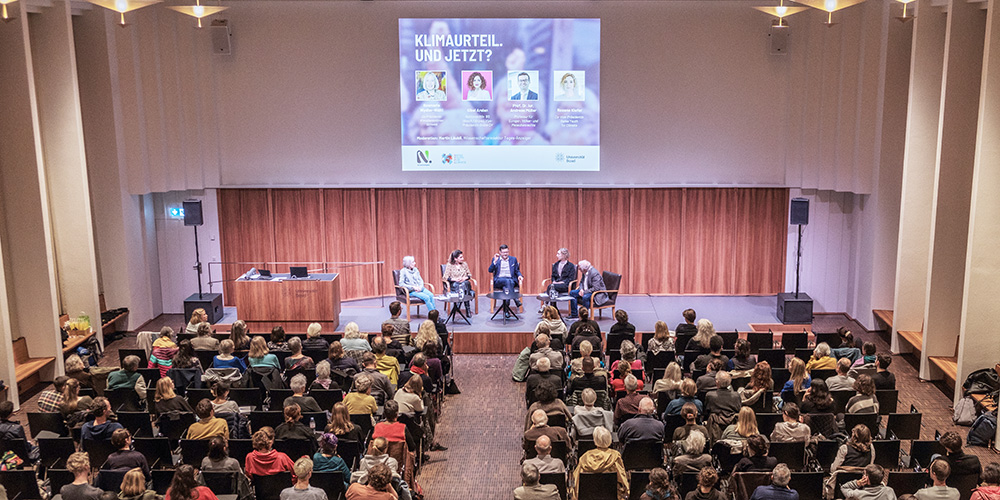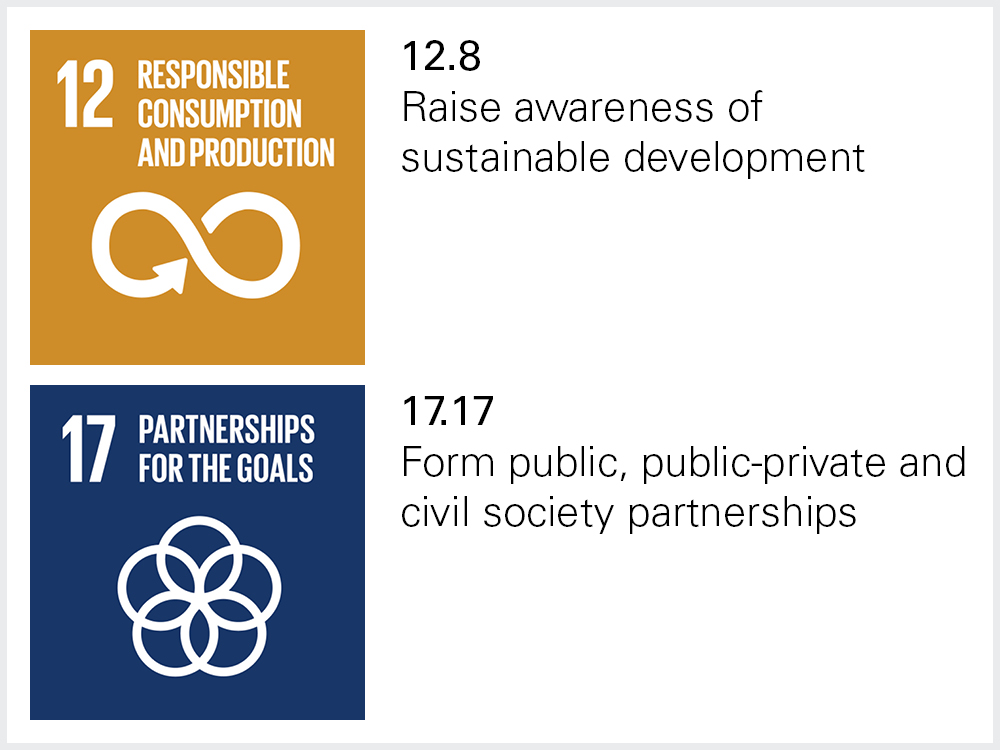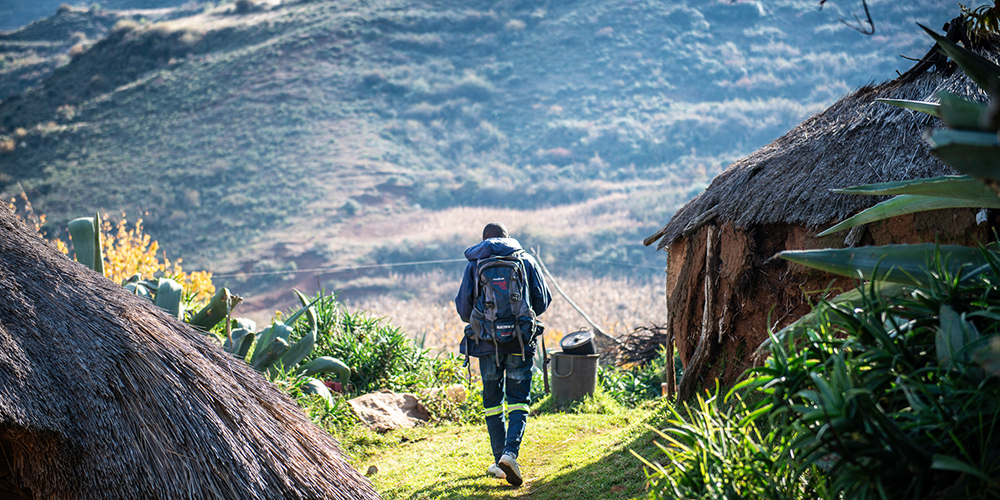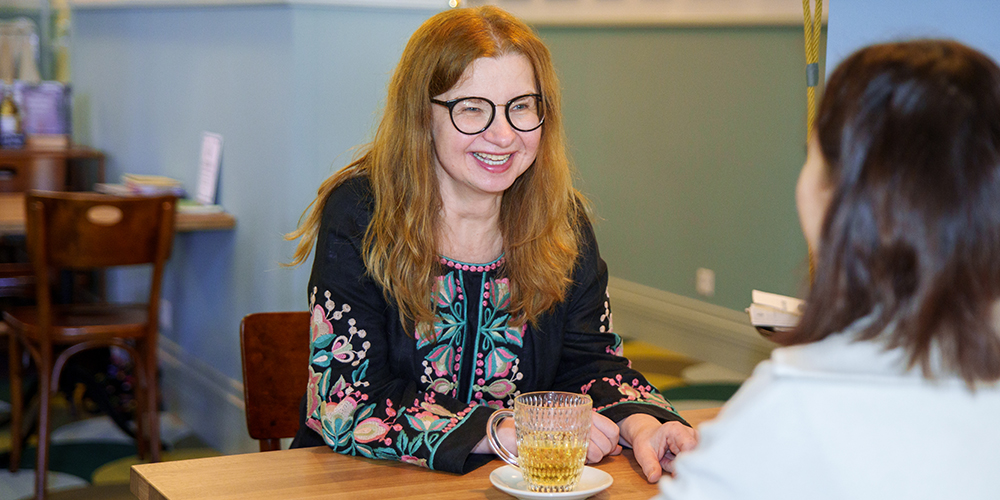Dialog

Over the past two years, researchers, staff and students at the University of Basel have once again been very active in disseminating current research findings outside the academies and intensifying dialog with social stakeholders. From international collaborations in the Eucor network to media contributions and target group-specific offers for senior citizens and children - the complex challenges of sustainable development were often the focus of the contributions.
Sustainably connected - regionally, nationally and internationally
The University of Basel is active in various networks to strengthen public dialog and transdisciplinary collaboration on sustainability issues. As part of the tri-national Eucor network, the universities of the Upper Rhine regularly exchange information on sustainability topics and implement joint events and projects. As a member of the International Sustainable Campus Network (ISCN), the University of Basel networks with top universities from all over the world on sustainability themes. In summer 2024, the Sustainability Office team was able to deepen these contacts during the ISCN conference in Lausanne and intensify cooperation in thematic working groups. Students are also given the opportunity to learn about sustainable development across borders in various ways. At regional level, the University continued its sponsorship of the Klimaplattform der Wirtschaft Region Basel. During the climate platform events, scientists from the Sustainable Future research network discussed with representatives from the Basel business community topics such as climate neutrality, hydrogen as an energy source and carbon removal technologies.
Science in dialog
Scientists at the university regularly prepare current research contributions on sustainability topics for the public and discuss them in various forums with the relevant stakeholder groups. For example, researchers led by Professor Hannes Weigt, compiled the current state of knowledge on the energy transition in Switzerland on a website before the vote on the “Federal Act for a Secure Electricity Supply” in summer 2024. Interested citizens, political and economic decision-makers and the media were thus able to obtain specific information based on current studies. As part of the implementation of the “net zero 2037” target in Basel-Stadt, researchers from the Sustainable Future research network engaged with the cantonal authorities and other stakeholders in various formats in order to provide scientific support for the process. The university also offered exciting insights into sustainability-related topics and challenges in lectures and events: This included the Sustainability Weeks 2023 and 2024 organized by students and the panel discussion “Climate verdict. And now?”, which in October 2024 addressed the ruling of the European Court of Human Rights on Swiss measures to combat global warming. Environmental and sustainability topics were also presented by university lecturers for retired people as well as a lecture series for children and young people in events such as “SeniorenUni”, “SamstagsUni” and “KinderUni”. The KinderUni lectures are publicly available on the online platform of the University of Basel.
Further events and dialog forums in 2023 and 2024 are listed in the following picture gallery:
On a sustainable mission - Epic Missions
As part of the EPICUR university alliance, the EPIC Missions teaching format brings together interdisciplinary teams of students from across Europe to solve real-world problems posed by stakeholders from politics, business, and civil society using scientific approaches. In 2023, students from the University of Basel and the EPICUR partner universities familiarized themselves with the problem to be solved during a kick-off week at Adam Mickiewicz University in Poznań (Poland) and learned the basics of collaboration in intercultural teams. Solutions were then developed by the teams over several months in virtual working meetings. At the end of the process, the proposed solutions were presented to the stakeholders from the field who had originally identified the problems.
In the media
Various researchers shared their expertise on topics relating to sustainability in the national and international media. In the Deutschland Funk Nova podcast, sleep researcher Dr. Christine Blume explained the impact climate change can have on healthy sleep. Economics professor Frank Krysiak gave an interview to the online medium Bajour on the subject of climate investments in connection with the inheritance tax initiative. In the Tagesanzeiger newspaper, international law professor Andreas Müller analyzed the ruling of the European Court of Human Rights, which found that Switzerland is doing too little to combat climate change. In the TV newsshow «10 vor 10» of SRF, ecology professor Patricia Holm explained how fish ladders at power plants and dams can be adapted, so that the invasive Black Sea goby cannot spread any further.
Various researchers shared their knowledge in the UNI NOVA University science magazine:
International Relations: Research-based companies and networking with Africa
International Relations managed the SARECO research and research-based innovation cooperation program for a second and final time in 2024. The focus in recent years has been on strengthening research-based business ideas. Over 250 start-ups, mostly from South Africa, took part in this program and around 60 Swiss start-ups used university and company contacts to gain a foothold on the African continent. For example in sustainable coffee and olive production or new AI-supported methods in wildlife monitoring. A dedicated webinar series has supported bridge-building since 2019 and offered opportunities for interaction with experts. A final alumni meeting in South Africa in November 2024 paved the way for further networking between company leaders from the participating countries.



